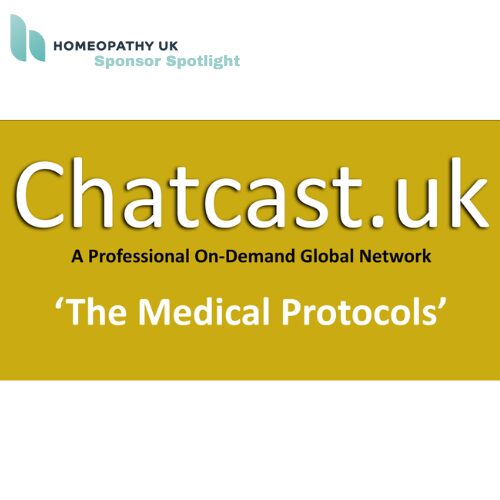Research – The Problems and Solutions
In no field is this more rife and problematic than in science and medicine. There is almost no independent research, because multi-national corporations are funding the university departments doing the research, and require a return on their investment.
Well respected scientists, who choose to look for answers to controversial questions, have found themselves ridiculed, defunded and no longer called upon to represent their institutions. The ramifications can be life changing.
WHERE HAS ALL THE INDEPENDENT SCIENCE GONE?
All is not well in the world of science and medicine.
Science is no longer independent, and the implications of that for our health are potentially catastrophic. Reports from within medicine itself suggest that much of the research funded by the pharmaceutical industry cannot be trusted, yet doctors must rely on it.
Dr Ben Goldacre, medical doctor and certainly no friend of homeopathy, says in the introduction of his book Bad Pharma: “Medicine is broken. And I genuinely believe that if patients and the public ever fully understand what has been done to them – what doctors, academics and regulators have permitted – they will be angry.”
A special report in the New England Journal of Medicine noted that life expectancy was falling and for the first time in 200 years children were not expected to live as long as their parents. A similar decline has been noted in Europe. [1]
In 2016 The British Medical Journal declared medical error to be the third leading cause of death in the US. Iatrogenic diseases, (physical or mental conditions caused by medical intervention, including prescription drugs and medical error) cost the UK NHS £2 billion a year and cause an unspecified number of hospitalisations and deaths. [2] [3]
Global health is in crisis and despite decades of hope and expectation, the pharmaceutical industry has failed to meet its basic needs.
HONEST DOCTORS CAN NO LONGER PRACTISE HONEST MEDICINE
In 2017, Dr Aseem Malhotra, Professor of Evidence Based Medicine, consultant cardiologist, leading obesity campaigner and previously the BBC’s go-to doctor about heart health, claimed that: “Corporate greed and political dishonesty has brought the NHS to its knees.” In April of 2018 he addressed the European Parliament with a presentation about the problems with Evidence Based Medicine. He spoke of his sadness and frustration that: “Honest doctors can no longer practise honest medicine.” [4] [5]
This is problematic for medical professionals and therefore their patients. According to the editors of two of the most prestigious medical journals in the world, the “evidence based” medicine on which doctors and their patients rely cannot be trusted.
In 2015, Dr. Richard Horton, the current editor-in-chief of the Lancet, one of the most well respected peer-reviewed medical journals in the world, said:
“The case against science is straightforward: much of the scientific literature, perhaps half, may simply be untrue. Afflicted by studies with small sample sizes, tiny effects, invalid exploratory analyses, and flagrant conflicts of interest, together with an obsession for pursuing fashionable trends of dubious importance, science has taken a turn towards darkness.” [6]
As far back as 2009, Dr. Marcia Angell, a physician and long-time Editor in Chief of the New England Medical Journal (NEMJ), another of the world’s most prestigious peer-reviewed medical journals, was damning in her criticism “It is simply no longer possible to believe much of the clinical research that is published, or to rely on the judgement of trusted physicians or authoritative medical guidelines. I take no pleasure in this conclusion, which I reached slowly and reluctantly over my two decades as an editor of the New England Journal of Medicine” [7]
Pharmaceutical companies fund the medical schools, dictate the curricula, support the medical journals with lucrative advertising, pay ghost writers for editorials writing uncritically about their latest ‘discovery’ and employ drug reps to offer kickbacks to doctors who preferentially prescribe the latest drug.
It is a trillion dollar industry and unfortunately if we follow the money we find more of the same.
A SINKING SHIP
The Cochrane Collaboration, once the world’s most prestigious scientific organisation with an independent group of global reviewers, was the go to resource for a balanced review of research.
“…We do not accept commercial or conflicted funding. This is vital for us to generate authoritative and reliable information, working freely, unconstrained by commercial and financial interests. Our work is internationally recognized as the benchmark for high-quality information about the effectiveness of health care…”
In 2018, shortly after Bill Gates made a $1.5 million sponsorship donation, one of the original co-founders, Peter Gøtzsche, was expelled and four board members resigned in his support, after he criticised the research supporting the HPV vaccine and its safety. [8]
“..Cochrane has become too sensitive to criticism of the pharmaceutical industry”, says one board member. Insiders say a ‘possible concern’ might be that Cochrane fears that Gøtzsche’s criticism of the HPV vaccine review would negatively impact its sponsorship from the Bill & Melinda Gates Foundation…. “ [9]
Glenn Greenwald, a respected investigative reporter, published a telling expose into the corporate use of paid trolls to influence public opinion, shut down valid concerns and provide damage limitation at times of corporate crisis. If you use the internet, especially for research, his report is essential reading: “How covert agents infiltrate the internet to Manipulate, Deceive and Destroy Reputations” [10]
In this context of a pay to play pharmaceutical industry bent on creating a monopoly, it is no surprise that there is a relentless chorus claiming that homeopathy has no evidence base. Rest assured, nothing could be further from the truth, but first a word about efficacy and effectiveness.
THE PROBLEM WITH RCTS.
There is an important difference between efficacy and effectiveness.
The ‘gold standard’ of the Randomised Controlled Trial (RCT), so loved by the pharmaceutical industry, is useful to test the efficacy of a one size fits all medicine within constrained circumstances over a short period of time. But it gives no indication of what the drug will do with patients over the longer term in the real world. This is a problem illustrated by drugs like Vioxx, withdrawn after being linked to significant increase in risk from heart attacks and deaths of more than 60,000 people. The diabetes drug Avandia, also implicated in elevated risk of stroke and heart disease was finally withdrawn ten years after approval. Drugs are pronounced efficacious by the research and approved by drug regulating bodies like America’s Food and Drug Administration (FDA) and the UK’s Medicines and Healthcare products Regulatory Agency (MHRA). It is only after the drugs have been approved for use by the public that we can see the level of their effectiveness in the real world. [11] [12]
HOMEOPATHY WINS HANDS DOWN IN EFFECTIVENESS STUDIES
Homeopathy is an individualised medicine, prescribed first and foremost for the individual patient rather than according to the diagnostic label assigned to the symptoms that patient is suffering.
For example, five patients suffering from the diagnostic label ‘flu’ may each need a different homeopathic medicine, depending on how the flu expresses itself. The diagnostic label of flu is assigned on the basis of the common symptoms we are all familiar with: a sudden fever, aching body, feeling exhausted, a headache, dry cough, a sore throat, poor appetite and so on.
However, homeopathy focuses on the individualising symptoms of each case of flu. One patient will experience aching in the back, another aching deep in their bones, another will feel chilled despite the fever, one will sweat profusely another will not sweat at all and yet another might sweat only on the head. One may have profuse mucous from the nose another may have photophobia and be unable to open their eyes in bright light. Each of these patients will need an individualised homeopathic medicine based on the patient and not on the diagnostic label of flu. The ability to prescribe individualised medicine is one of homeopathy’s greatest strengths.
However, this does mean that RCTs, which demand that all patients receive identical treatment for a set time and in specific circumstances, are not a useful measure of homeopathy’s efficacy.
This challenge not withstanding, there are studies in which a single homeopathic medicine was given to a group of patients based only on the diagnosis, and remarkably the homeopathic groups outperformed both the placebo groups and the prescribed pharmaceutical medicine. An example is Edzard Ernst’s excellent study on varicose veins which showed ‘venous filling time improved in those given the homeopathic medicines by 44%, while it deteriorated in the placebo group by 18%’. [13]
To understand why you may not have heard about this particular body of research check out this page If it’s so good why don’t doctors use it.
OUR EXTENSIVE RESEARCH DATABASE
Our research section provides an easy way to search data base of 5,000 research papers together with the latest research on high dilution and biological action, and access to the 2018 ground breaking conference at the Royal Society of Medicine. World class scientists and Nobel Laureates presented new discoveries in the science of water, which have powerful implications for the future of homeopathy.
HOMEOPATHY – ON THE CUTTING EDGE OF SCIENCE
References
[1] NEJM Special Report
A potential decline in life expectancy in the United States in the 21st Century
N Engl J Med 2005; 352:1138-1145 March 17, 2005
[2] https://www.pharmaceutical-journal.com/news-and-analysis/medication-errors-cost-the-nhs-up-to-25bn-a-year/20066893.article?firstPass=false
[3] Medical Error – the third leading cause of death in the US
BMJ 2016;353 pub 03 May 2016
[4] Presentation to Save NHS http://doctoraseem.com/big-food-bad-pharma-greed-brought-healthcare-knees/#more-701
[5] Presentation to EU parliament – 12 April 2018
https://www.youtube.com/watch?v=H4uVNywg848
[6] Horton R. Offline: What is medicine’s 5 sigma?
The Lancet, Vol 385, issue 9976, pg 1380 April 2015
https://www.thelancet.com/journals/lancet/article/PIIS0140-6736(15)60696-1/fulltext
[7] Angell M. Drug Companies & Doctors: A Story of Corruption. The New York Review of Books magazine. http://www.nybooks.com/articles/archives/2009/jan/15/drug-companies-doctorsa-story-of-corruption/
[8] https://blogs.bmj.com/bmjebmspotlight/2018/09/16/cochrane-a-sinking-ship/
[9] https://healthimpactnews.com/2018/gates-foundation-buys-cochrane-integrity-for-1-15-million-the-death-of-scientific-integrity/
[10] https://theintercept.com/2014/02/24/jtrig-manipulation/
[11] https://www.newscientist.com/article/dn13685-drug-giant-merck-accused-of-deaths-cover-up/
[12] Avandia – a telling feature from the BMJ https://www.bmj.com/bmj/section-pdf/186088?path=/bmj/341/7772/Feature.full.pdf
[13] Ernst E, Saradeth T. “Complementary Treatment of Varicose Veins: A Randomised, Placebo-controlled, Double-blind Trial”. K.L. Resch, 1990, 157-163.






